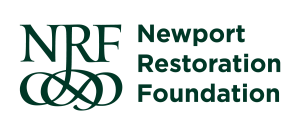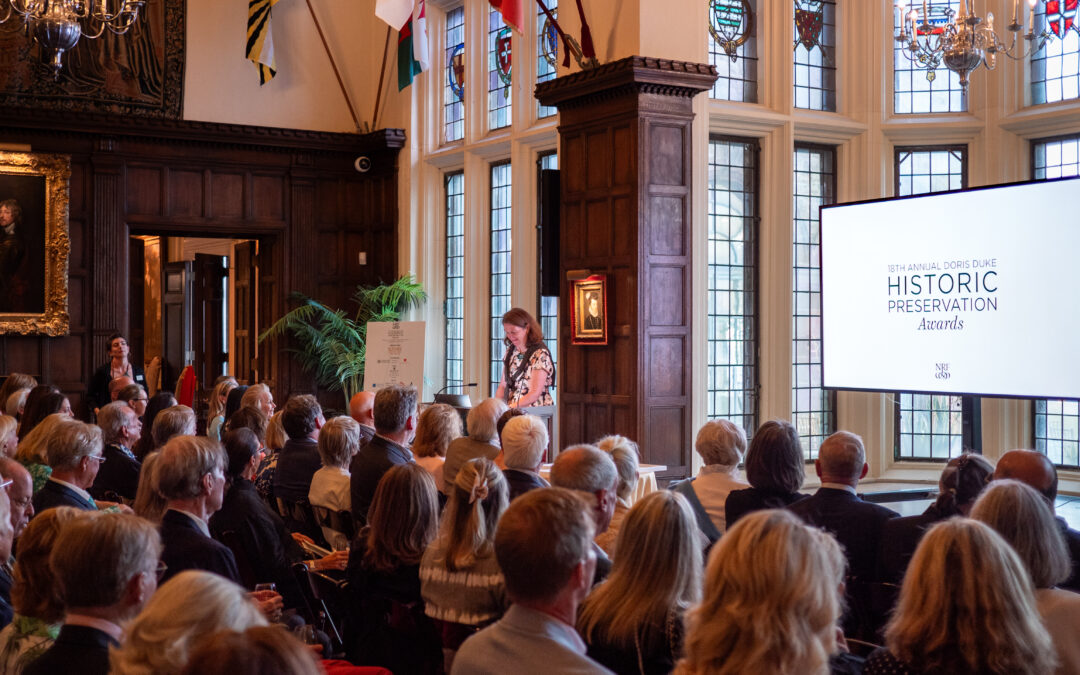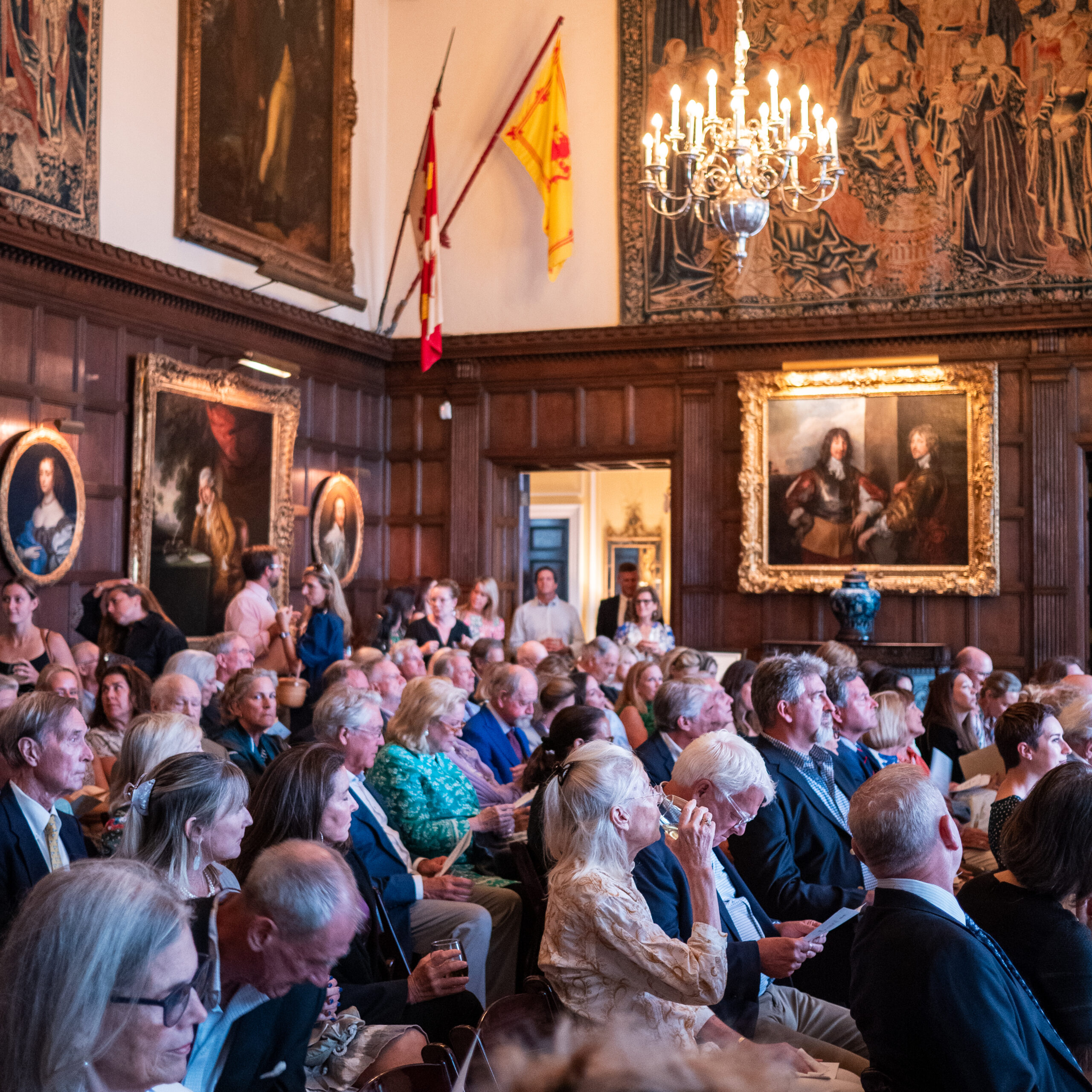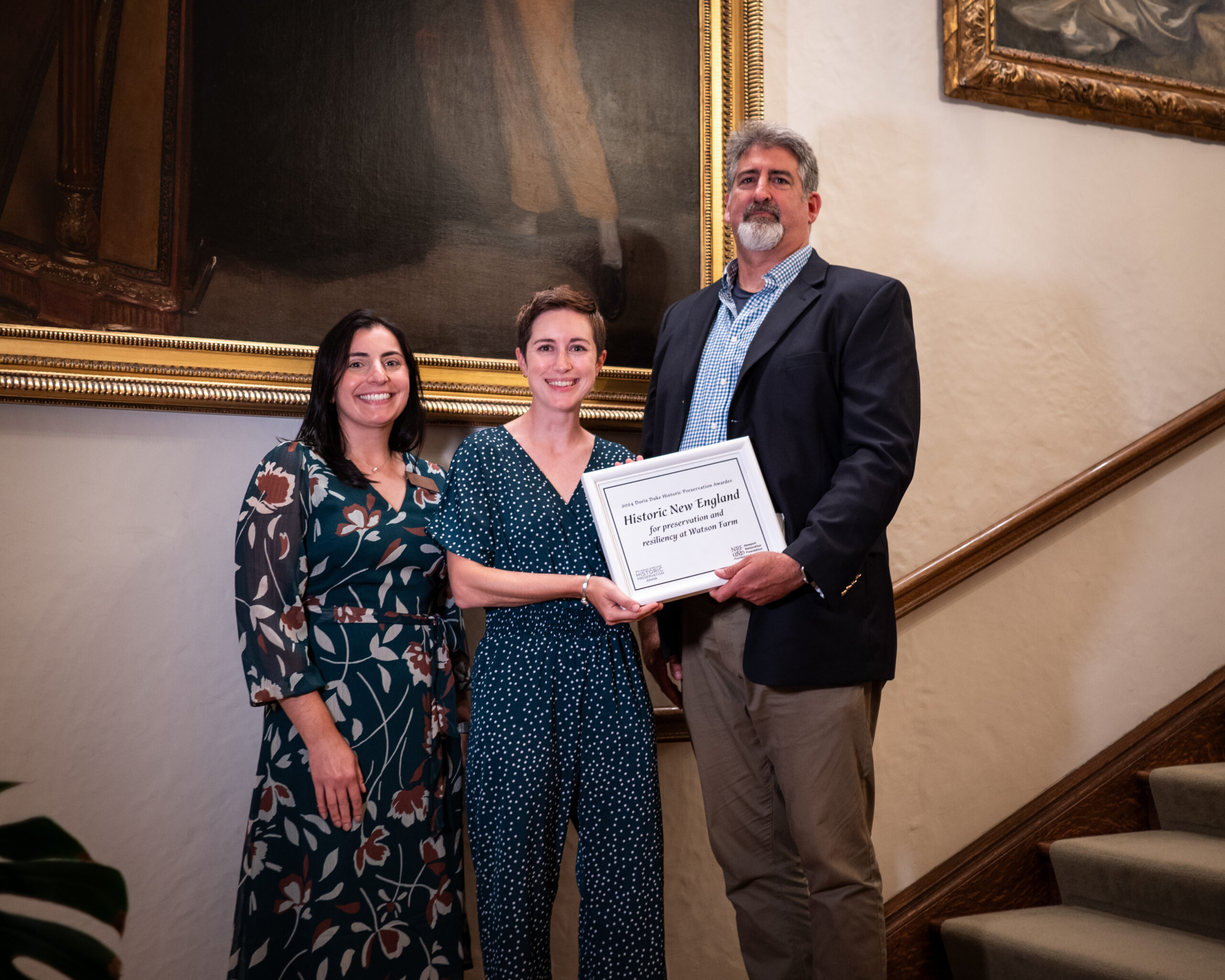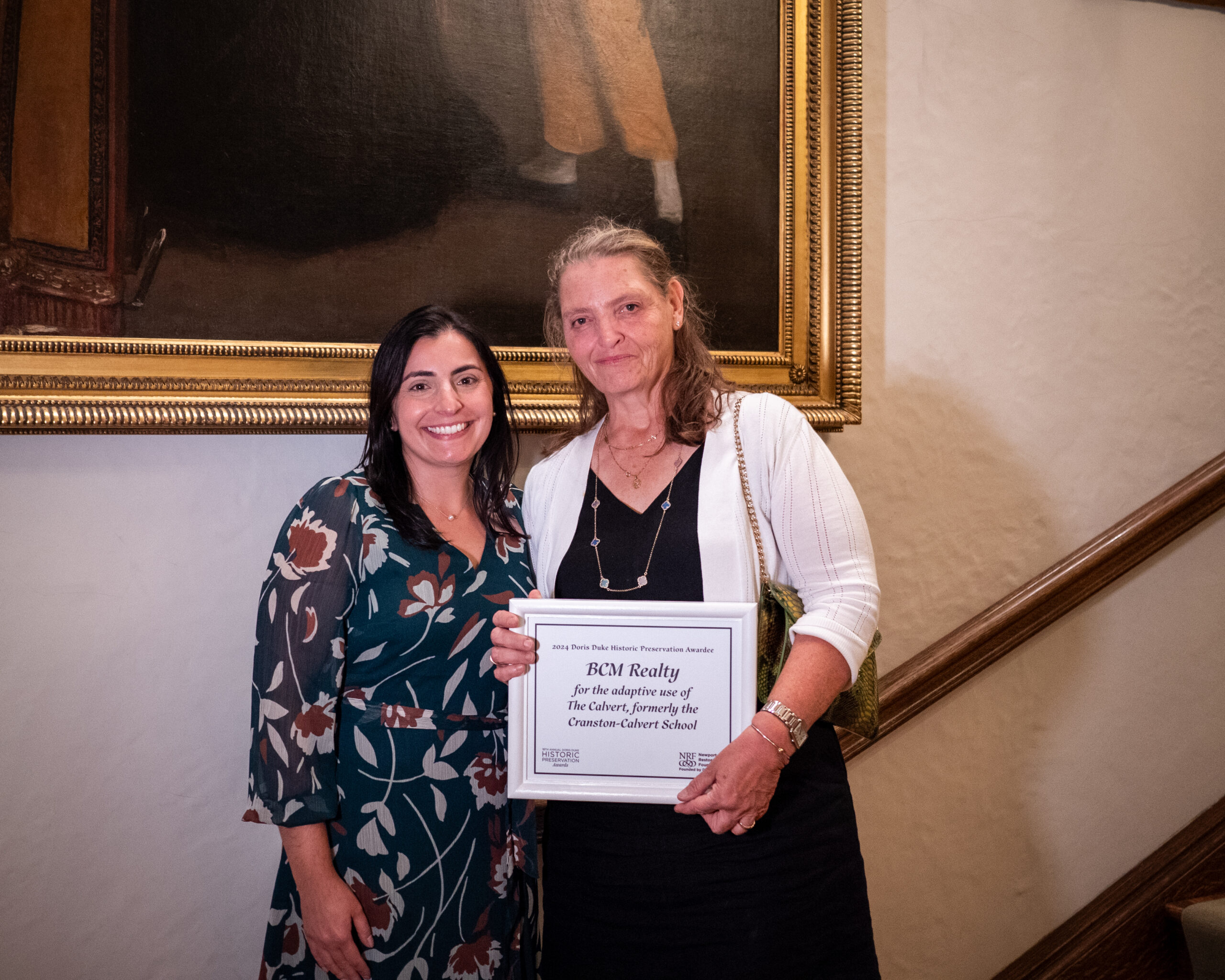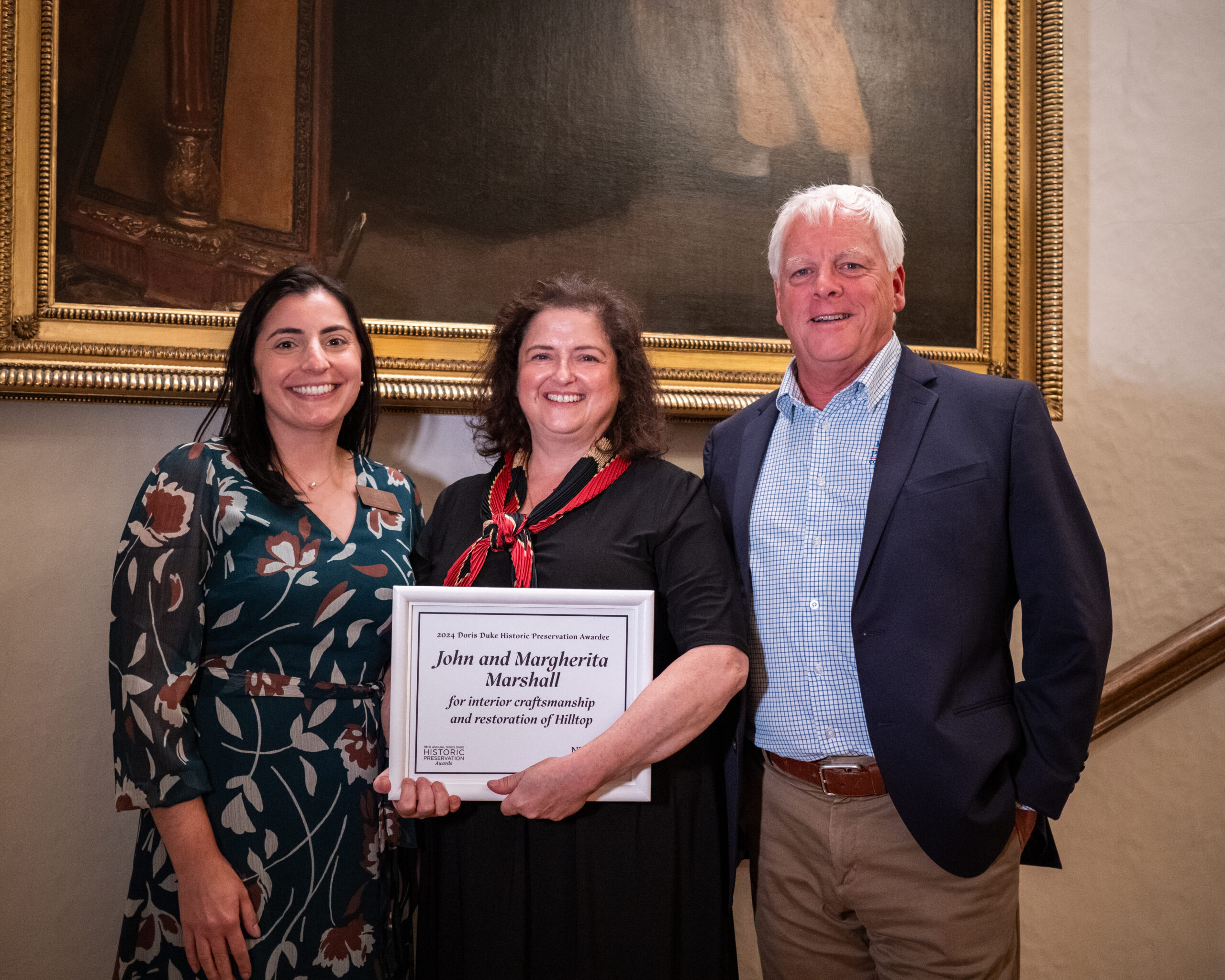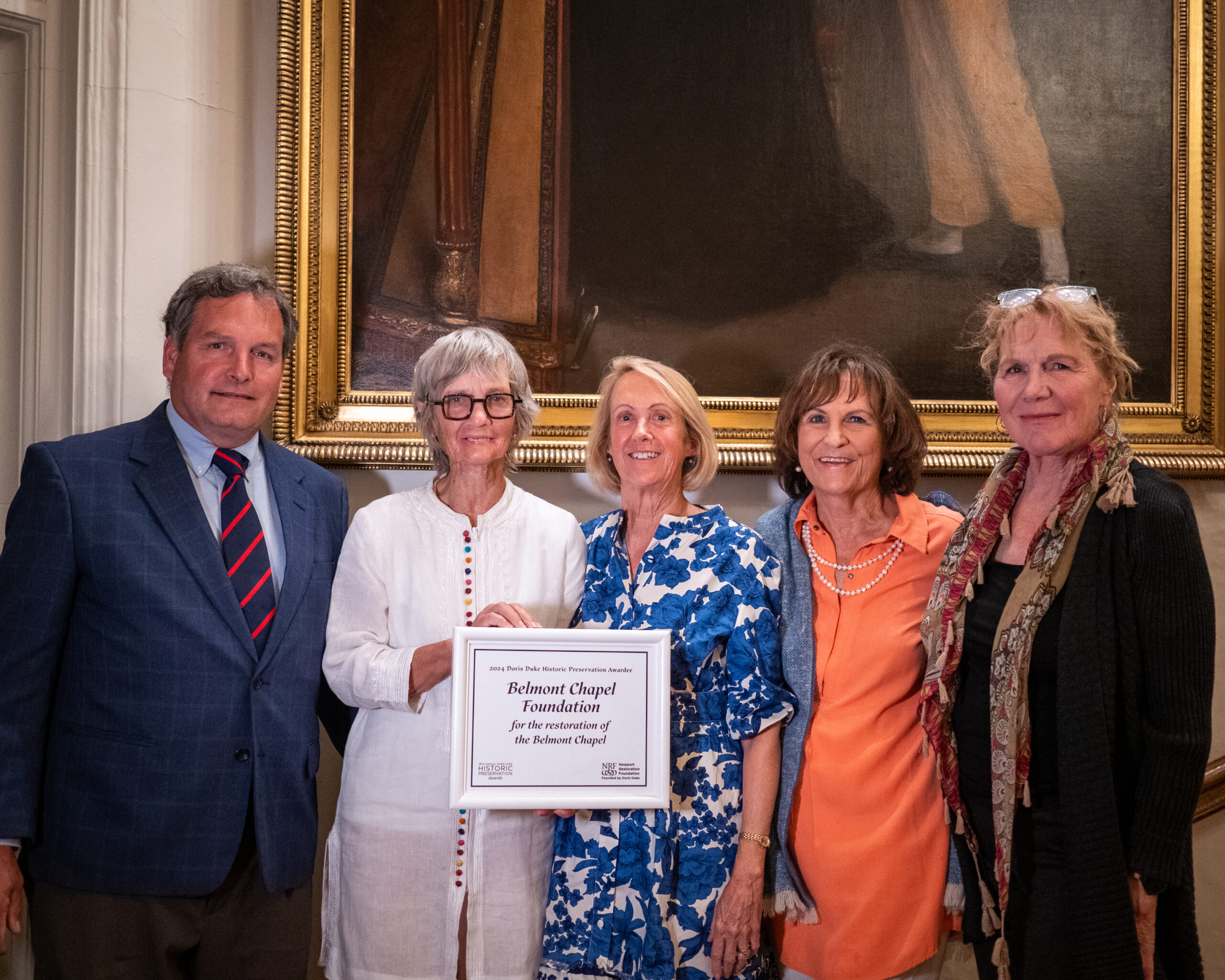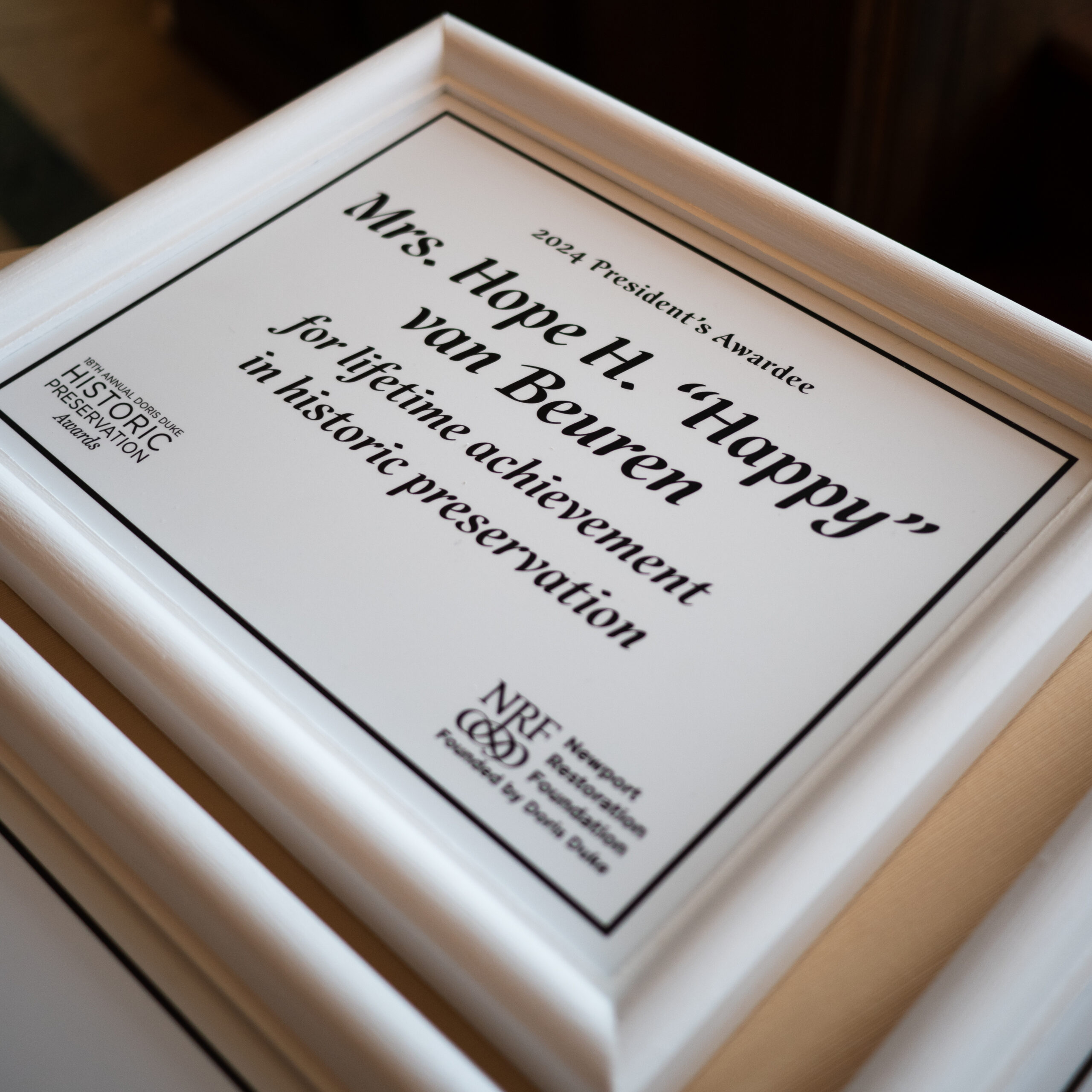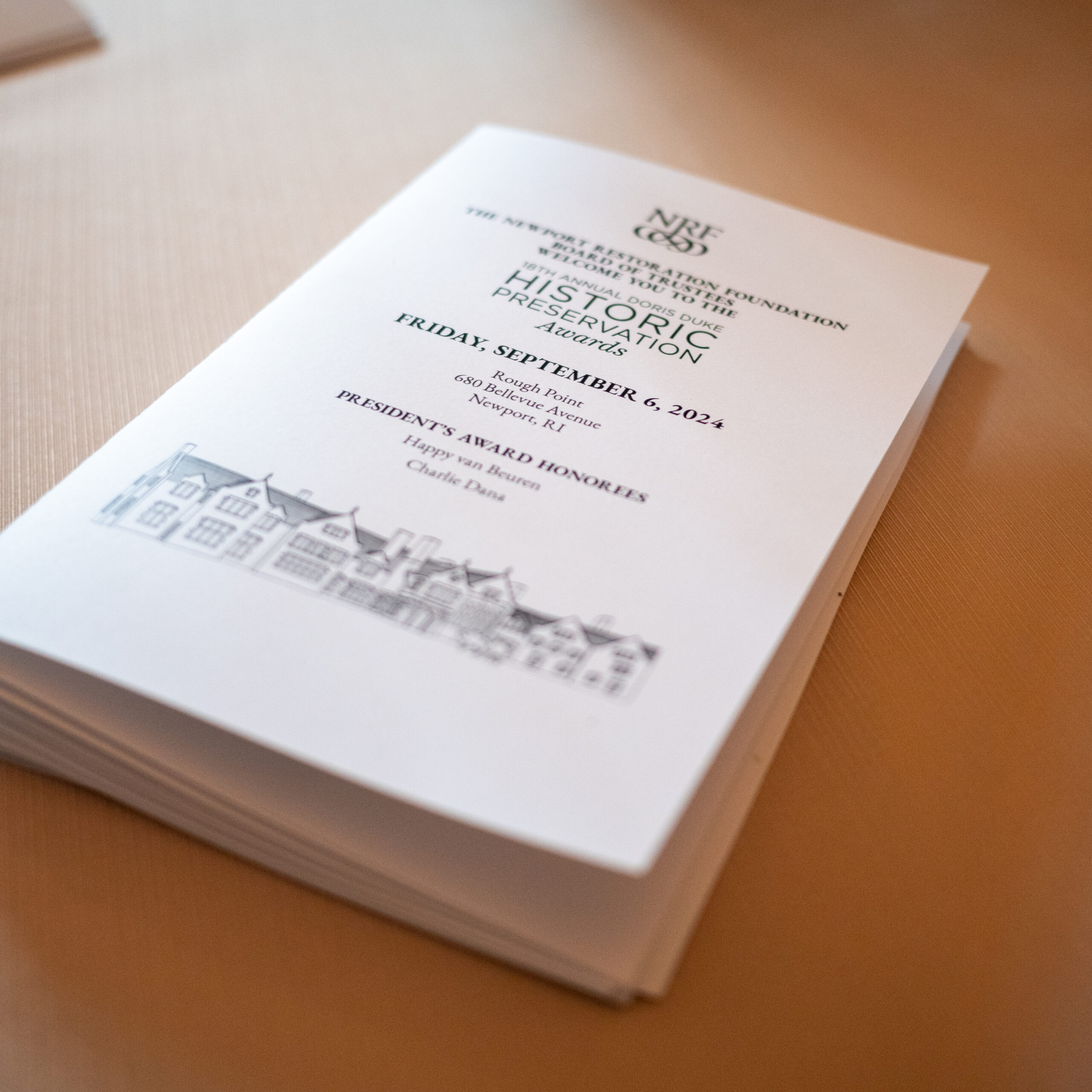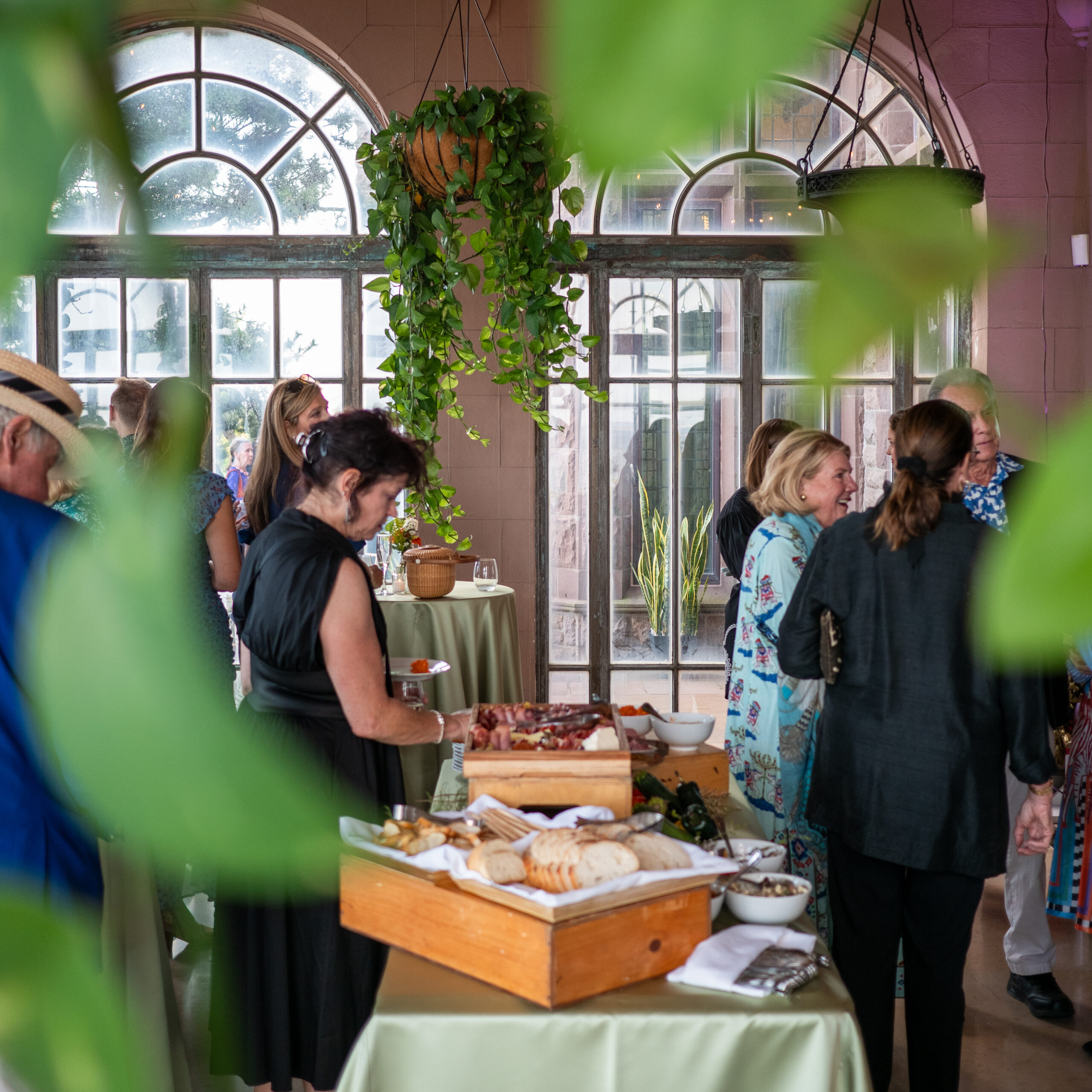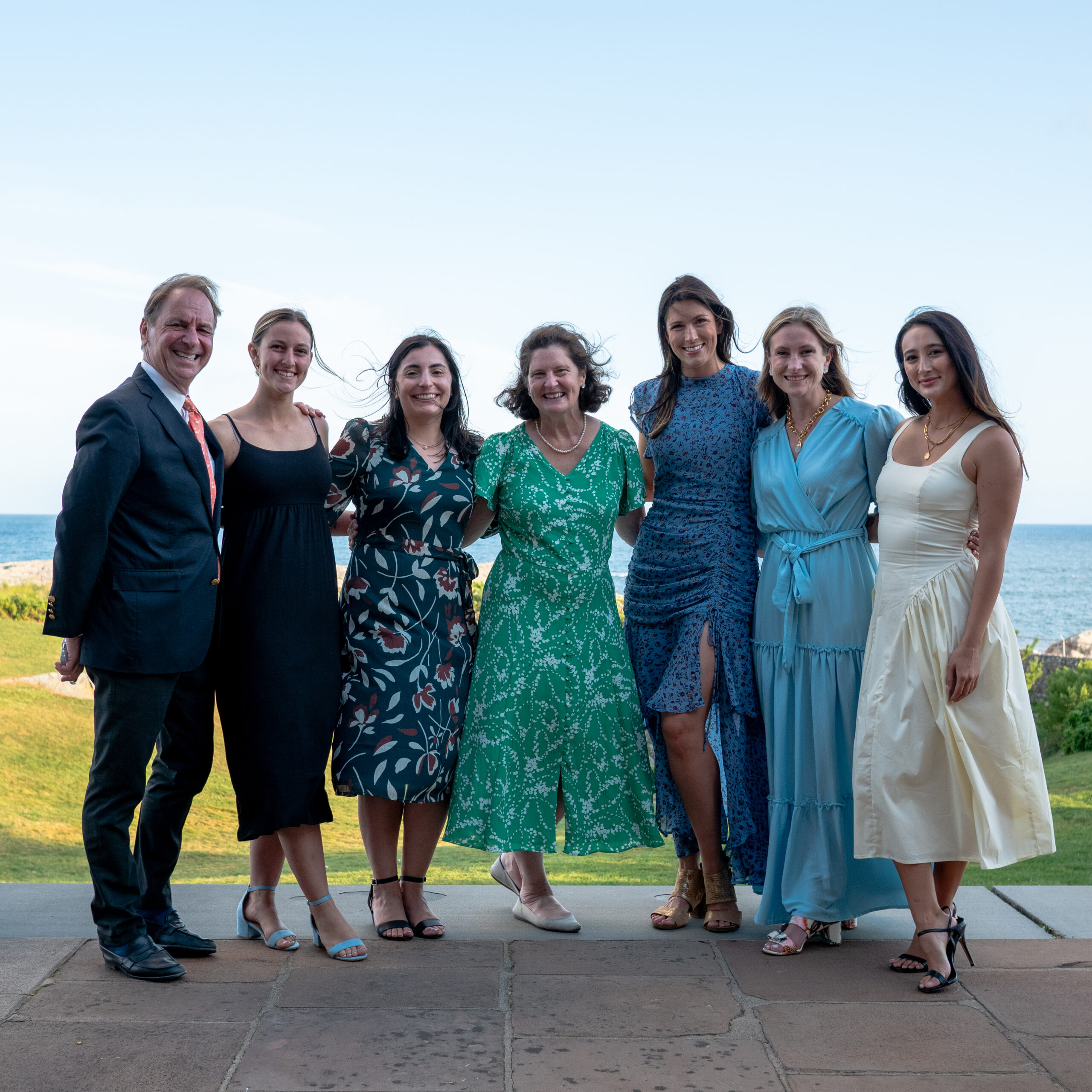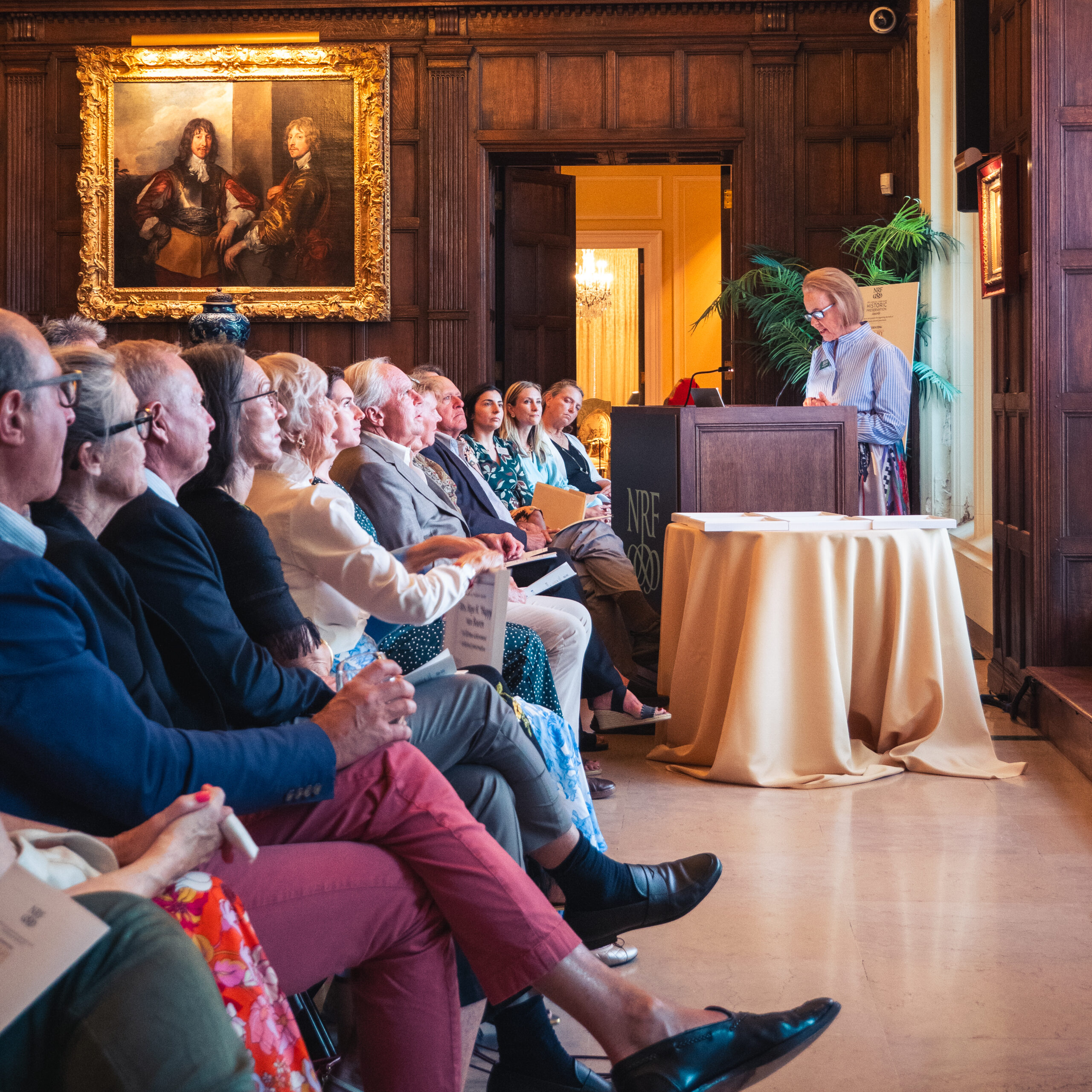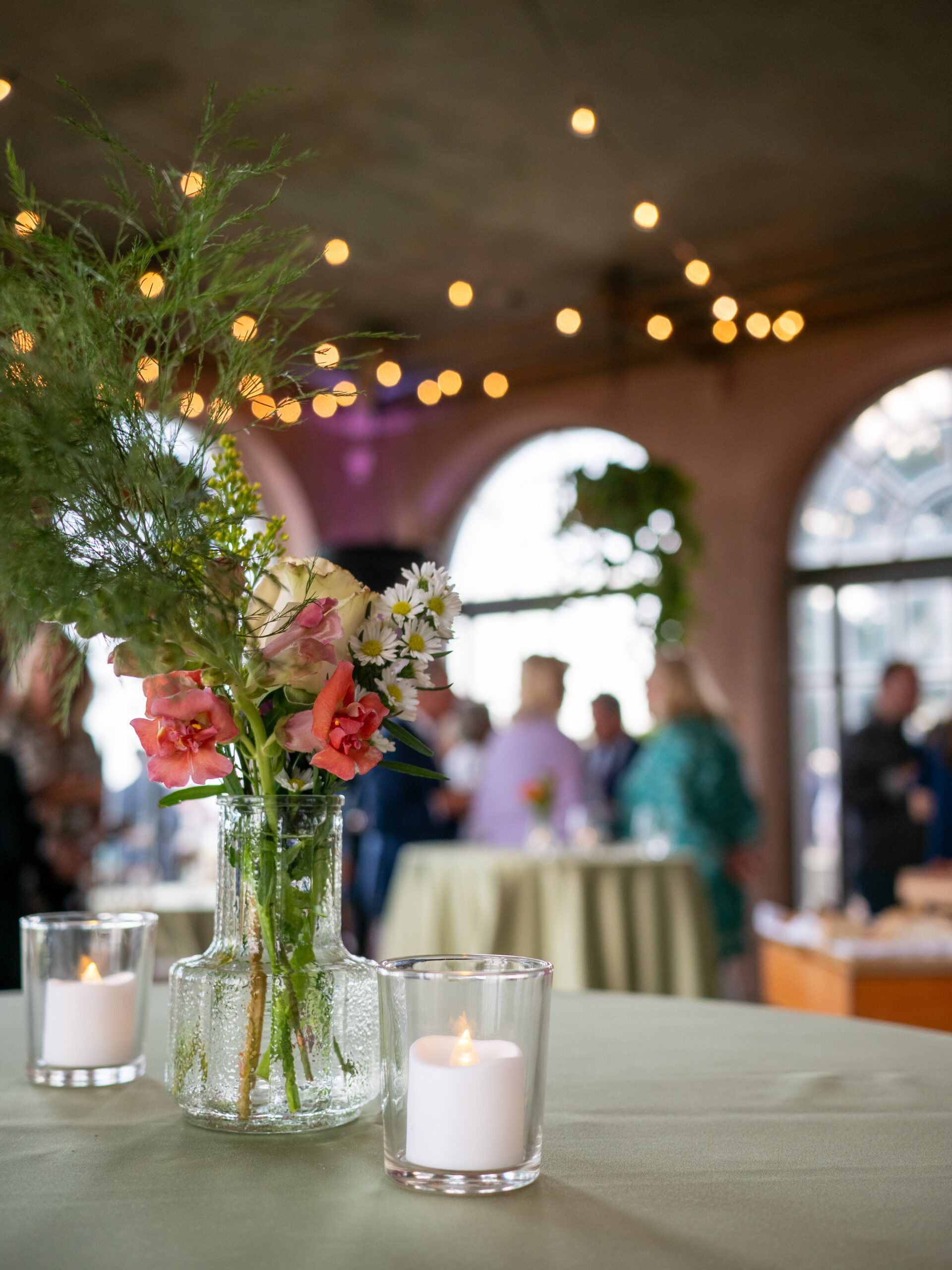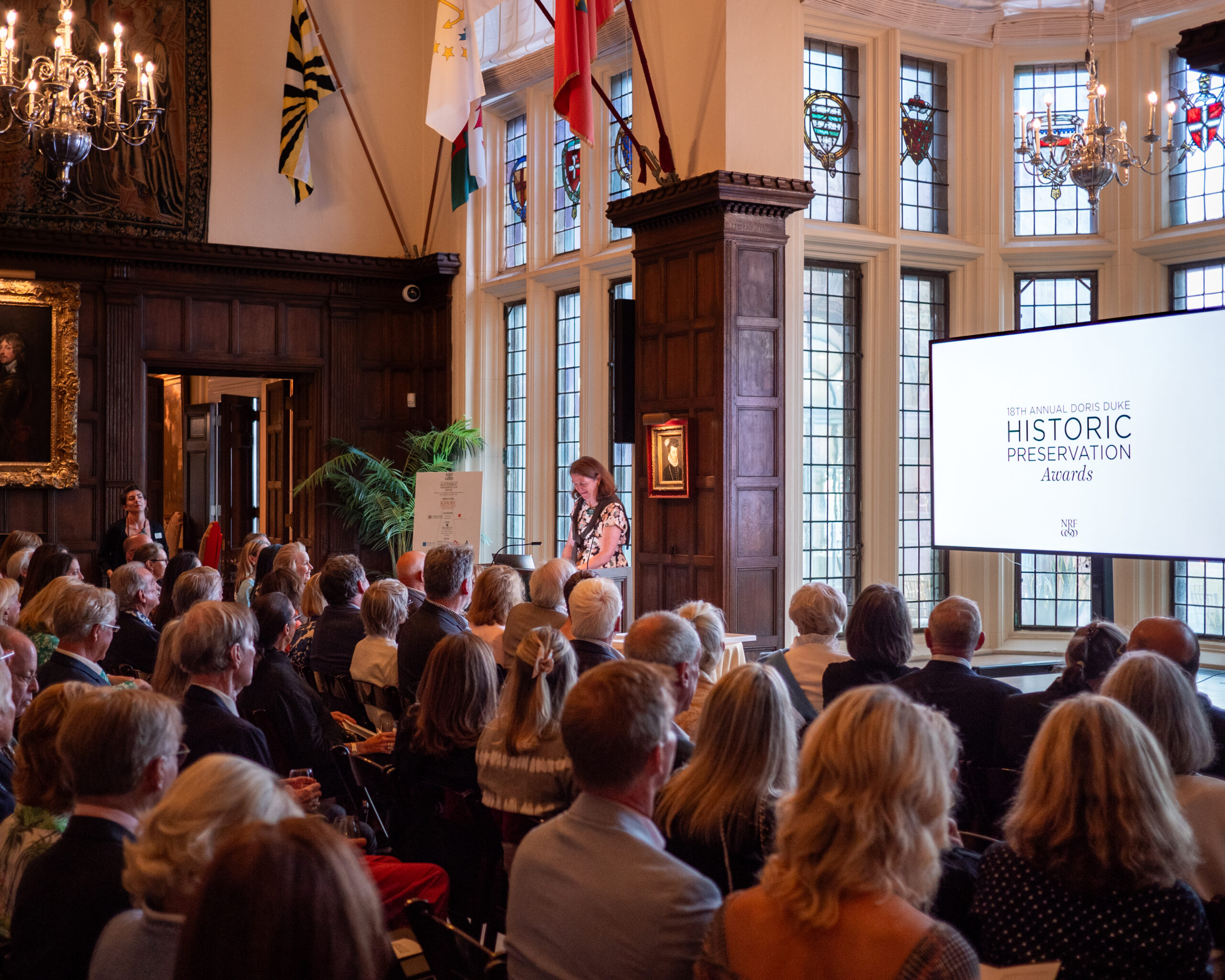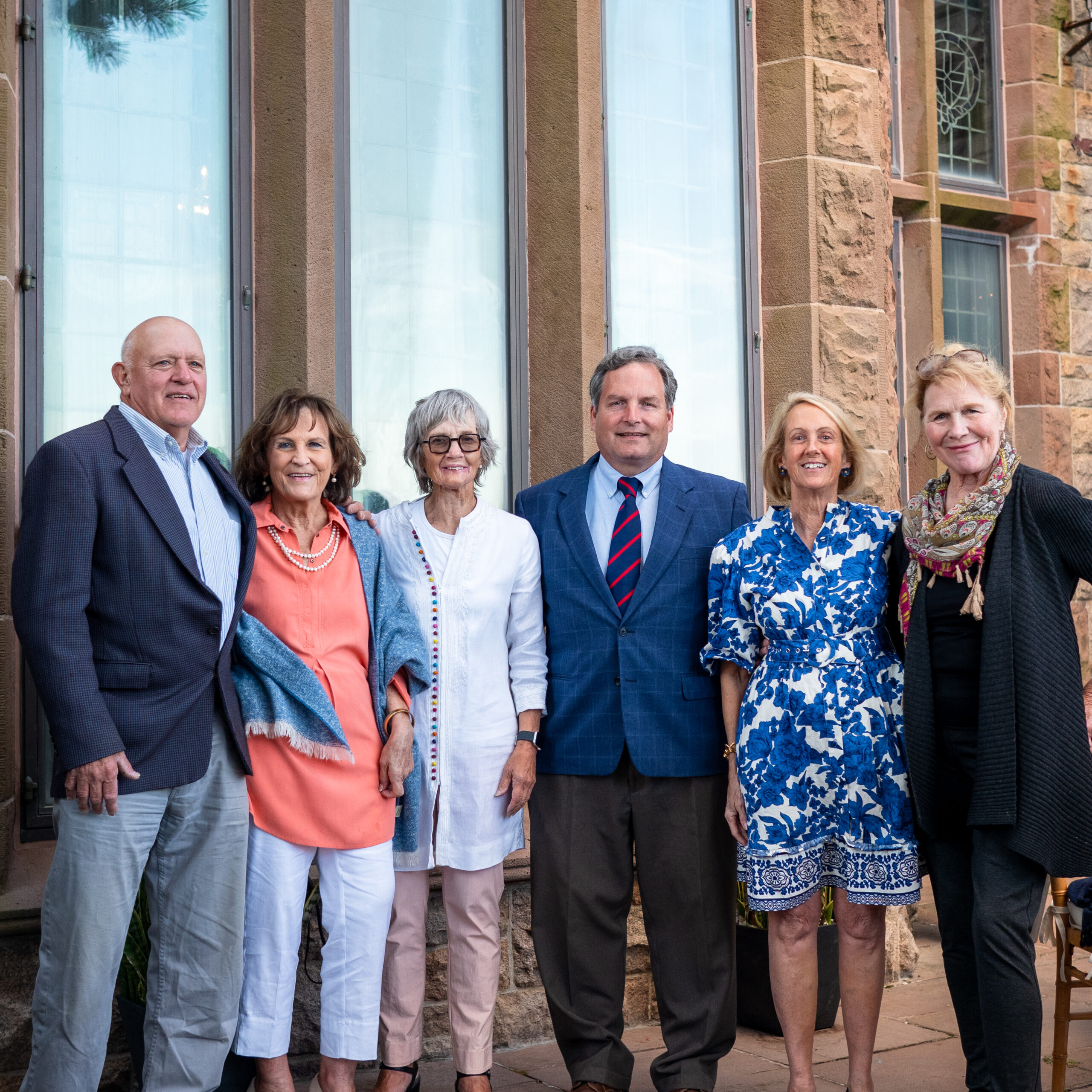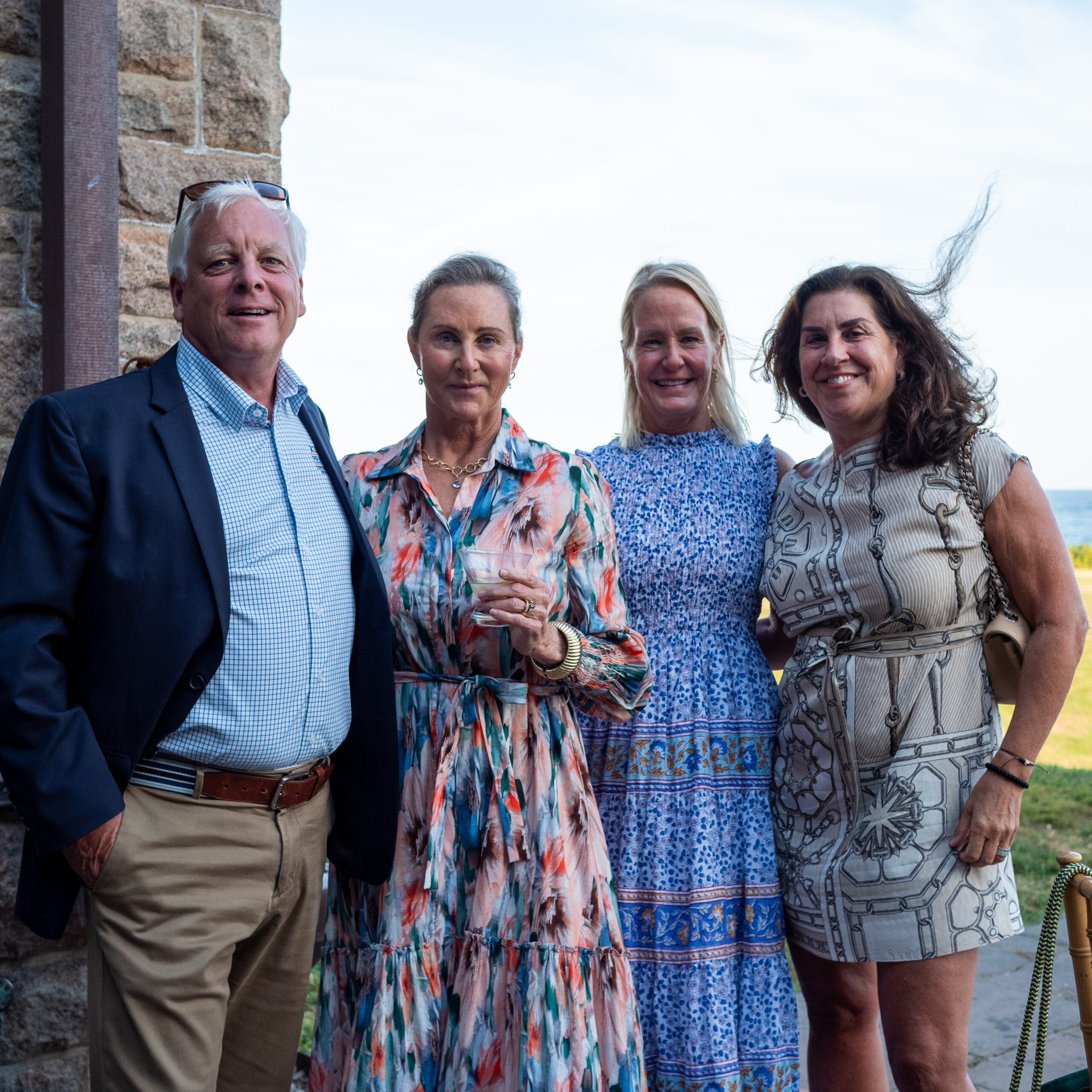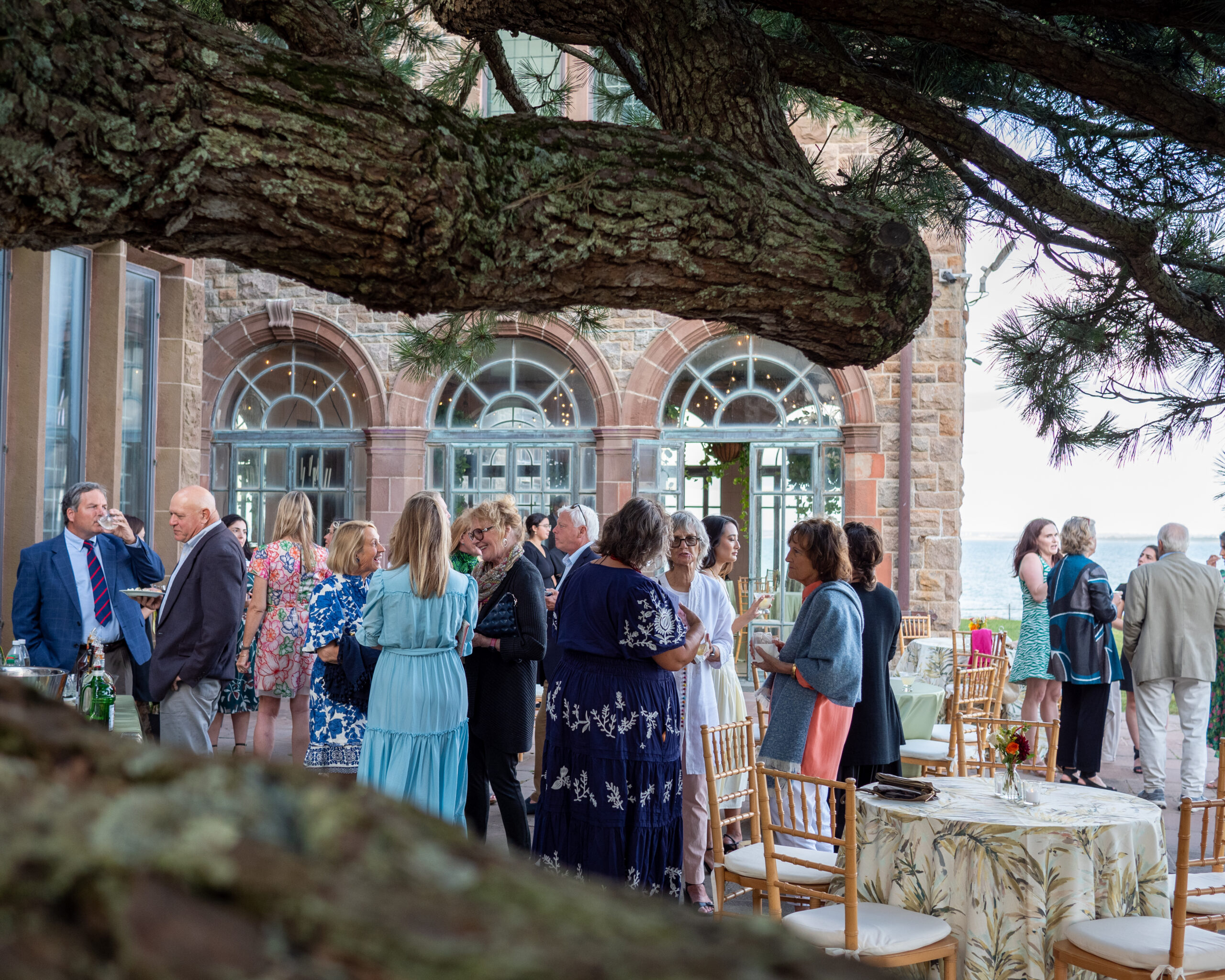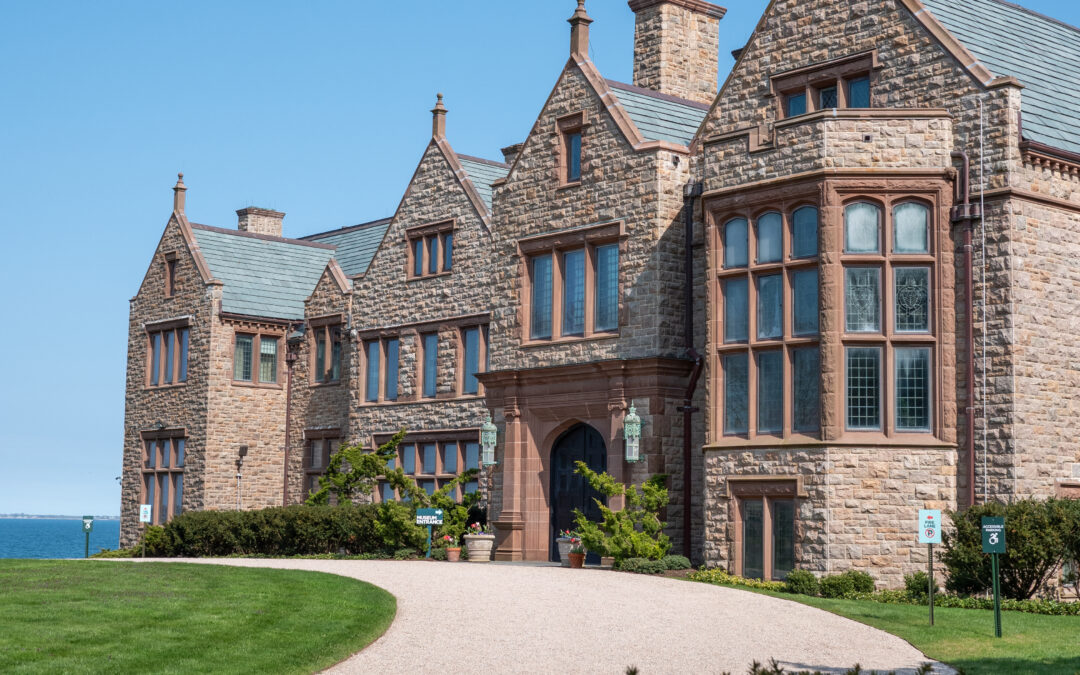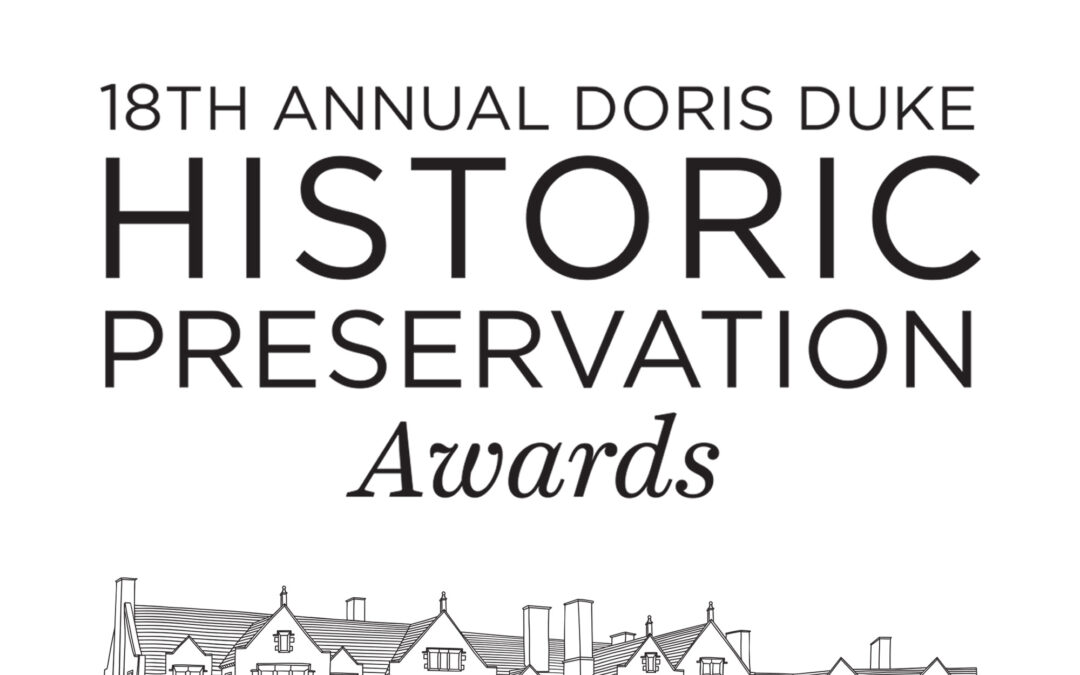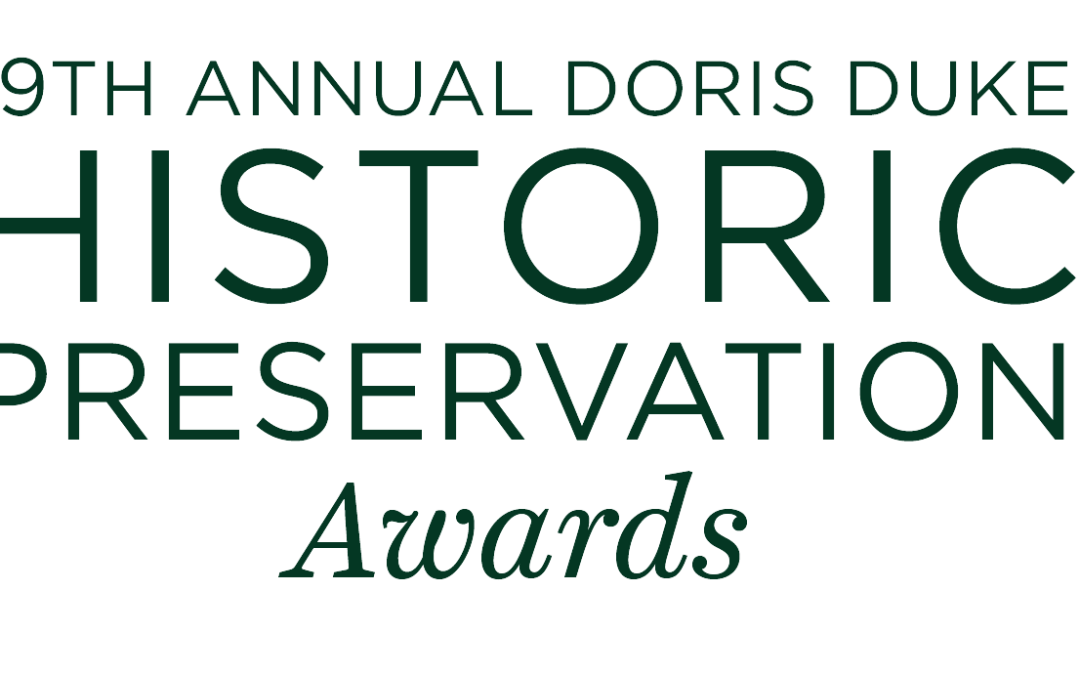
by NRF Media | Jul 2, 2025 | NRF News
NEWPORT, RI –The Newport Restoration Foundation (NRF) and the City of Newport are thrilled to announce the recipients of the annual Doris Duke Historic Preservation Awards for exemplary projects of historic preservation in Newport.
The Doris Duke Historic Preservation Awards are a collaboration of the Newport Restoration Foundation and the City of Newport. Award winners are recognized at the Doris Duke Historic Preservation Awards ceremony, a signature celebration taking place on Friday, September 5, 2025, at Rough Point in Newport.
Jill Chin, Preservation Planner for the City of Newport, states, “The Doris Duke Preservation Awards celebrate dedicated homeowners and organizations that exemplify what it means to be a steward, inspiring others to follow suit. We are looking forward to further collaborations with NRF to support and advocate for historic preservation projects throughout the City that help make Newport such a special place to live, work, and visit.”
The 2025 Doris Duke Historic Preservation Awards highlight preservation excellence and meeting community needs, including an emphasis on craftsmanship, attention to resiliency and energy efficiency, community impact and engagement, and adaptive reuse.
“We are excited to announce a wide-ranging group of awardees this year championing preservation best-practice in Newport,” says NRF’s Director of Preservation, Alyssa Lozupone. “There were a record number of nominations this year; encouraging us with clear evidence that preservation projects are vital to our community.”
This year’s awards recognize the following outstanding projects:
Hope Street Barn (1901), Newport, RI – Award for Restoration with Adaptive Reuse
Awarded for the detailed restoration of the 7 Hope Street Barn. The project championed historic preservation by uncovering and preserving character-defining features while also sensitively adding elements such as skylights to accommodate a new, modern use that would make the property viable into the future.
Project team: Laura and Wayne Glazier (owners); Mohamad Farzan of NewPort Architecture, LLC (architect); Damon Company, Newport (contractor).
Honeysuckle Carriage House (1886), Newport, RI –Award for Excellence in Craftsmanship
Awarded for the restoration of the 1886 Peabody & Stearns designed Honeysuckle Lodge carriage house to its historic appearance and utility in the Ochre-Point National Register District. The project is a high-quality example of a secondary structure complimenting its greater site that was executed with precision, superb craftsmanship, and sensitivity to detail.
Project team: Bernard Chiu (owner); Kirby Construction (contractor).
Ochre Court Cignaroli Ceiling Painting (ca.1735), Newport, RI— Award for Restoration and Engagement
Awarded for the discovery, research, and restoration of the Giambettino Cignaroli ceiling mural within Ochre Court. The mural’s meticulous restoration is a valuable contribution to art history and cultural heritage preservation while supporting student and community engagement.
Project team: Salve Regina University (owner); Michael Semenza, emeritus staff, Salve Regina University (project co-director); Jared Coleman, director of facilities, Salve Regina University (project co-director); Paul Miller, Director, Cloud Hill Museum (project lead).
OVERLAP Gallery (ca. 1930), Newport, RI— Adaptive Reuse and Community Impact Award
Awarded for the adaptive reuse of a former 1930s automotive service station into a vibrant community art gallery. This excellent example of adaptive reuse preserves the signature 20th -century appearance and scale of the surrounding streetscape while enhancing the character, vitality, and community of this historic, mixed-use residential neighborhood.
Project team: Suzie Matthews (owner); ETT Architects (architect); Joseph Scotti Construction (contractor); Martha Moore Landscape Architect (landscape architect).
The Doris Duke Historic Preservation Awards help sustain NRF’s work supporting our local communities through preservation initiatives that address the impact of climate change on architectural and cultural heritage, make intangible cultural heritage accessible through more expansive storytelling, and invest in the historic preservation trades and preservation skills-building.
Sponsorship opportunities are now available for individuals and organizations to support and align themselves with historic preservation through this event, which is NRF’s largest annual fundraiser. Each level of support includes exclusive opportunities and perks like event tickets with VIP access, special recognition, and more. Visit newportrestoration.org/DDPA to learn more about sponsorships and how to join the celebration on Friday, September 5.
###
About the Newport Restoration Foundation
The Newport Restoration Foundation is a non-profit organization established by philanthropist Doris Duke in 1968 to preserve the architectural and cultural heritage of 18th and 19th century Newport. NRF promotes economic and community restoration through historic preservation initiatives like Keeping History Above Water, which advocates for resiliency and the protection of cultural resources in the wake of climate change, the Historic Trades Initiative, which trains the next generation of preservation tradespeople in vital skills, and Telling Stories, which shares the stories of people connected to the places NRF cares for and helps ensure their preservation. In addition to a portfolio of more than 70 historic houses rented in an unique Tenant Stewardship program, NRF operates properties that are open to the public including Rough Point, the Newport home of Doris Duke, and the 300+ year-old Vernon House, a site of expansive storytelling, contemporary dialogue, and preservation trades skill-building. For more information, please visit www.NewportRestoration.org.
NRF is on Facebook /NPTRestoration and Instagram @NPTRestoration

by NRF Media | Jun 7, 2025 | NRF News
NEWPORT, RI – The Rhode Island Black Heritage Society (RIBHS) and the Newport Restoration Foundation (NRF) are announcing programming in celebration of the Juneteenth holiday including the opening of A Matter of Truth-Newport, an exhibition on view at Vernon House/46 Clarke Street, Newport.
The community is invited to an afternoon and evening of storytelling, history, and reflection as part of a special event celebrating Black freedom and honoring the rich and complex history of African heritage and Indigenous peoples in Rhode Island.
June 19th, 1:30 PM
Rought Point, 680 Bellevue Ave, Newport, “Stories and Songs in Celebration of Black Freedom” a dynamic performance by Valerie Tutson of the Rhode Island Black Storytellers. Through powerful narratives and songs, Tutson will bring to life the enduring spirit, resilience, and cultural traditions of Black communities. Tickets for this free program are available at newportrestoration.org/events.
June 19th, 5:30 PM
Jane Pickens Theater, 49 Touro St. Newport. “A Matter of Truth Newport: Chronicling 400 Years of Resilience in Newport, Rhode Island (1620-2020)” a talk by Keith W. Stokes — Rhode Island’s State Historian Laureate and co-author of A Matter of Truth — will deliver a thought-provoking talk on the ongoing journey toward truth, justice, and equity. Stokes’ presentation will offer historical insights and personal reflections on Rhode Island’s 400-year history of racial discrimination and resilience. Tickets available at https://janepickens.com/.
June 20th, 11:00AM-4:00PM
Vernon House, 46 Clarke St., Newport. Opening of A Matter of Truth-Newport, an exhibition celebrating the contributions and resiliency of African heritage and Indigenous peoples in Newport, Rhode Island.
Inspired by the book A Matter of Truth: The Struggle for African Heritage & Indigenous People Equal Rights in Providence, Rhode Island (1620-2020), this exhibition, through objects and narratives from RIBHS’s extensive collections, celebrates the indelible contributions of people of color to the rich legacy of Newport’s architectural and cultural heritage.
Theresa Guzmán Stokes, Executive Director of the Rhode Island Black Heritage Society states, “This exhibit shines a light not only on Newport’s rich and complex history, but also on the deep importance of preserving the places where those stories unfolded. To stand in the spaces where people lived, worked, and worshipped is to feel their presence — to see history come alive in a way that words alone cannot capture. For African heritage history especially, these touchstones matter. They bear witness to lives, to struggles, to triumphs, and to a legacy that deserves to be seen and celebrated. Through our partnership with the Newport Restoration Foundation, we are honored to help bring these stories to life and ensure they continue to inspire for generations to come.”
Themes will include the long and often overlooked history of racial injustice in Rhode Island, tracing the displacement of Indigenous peoples, the enslavement of African heritage peoples, Newport’s Gilded Age, and the impact of 20th-century urban renewal—shedding light on the persistent patterns that continue to shape the lives of people of color today. This meaningful gathering offers an opportunity for our community to come together, honor the past, and look ahead with a deeper understanding of the history that connects us all.
“We are so pleased to be partnering with the Rhode Island Black Heritage Society to bring this exhibition and programming to Newport,” states Gina Tangorra, NRF Director of Engagement. “NRF and RIBHS have a long-connected history—our founder Doris Duke was an early supporter of the planned Black history museum in Newport in the1970s and NRF Executive Director Francis Comstock was an advisor on the project. The core collections of that planned museum formed the Rhode Island Black Heritage Society—and so it feels full-circle to be hosting this exhibit at the Vernon House, a historical site in NRF’s care with many layers of stories. The Vernon House—like many of the houses that NRF stewards—has a long and deep history connected to stories of Black and Indigenous resiliency, entrepreneurship, and placemaking.”
The exhibition at Vernon House/46 Clarke Street, Newport will run from June 20th to September 28th, 2025, on Fridays, Saturdays, and Sundays, from 11:00AM to 4:00 PM. Admission to A Matter of Truth-Newport is free. Timed entry reservations are available at newportrestoration.org/tickets.
###
About the Rhode Island Black Heritage Society
The Rhode Island Black Heritage Society, formed in 1975, is one of America’s oldest African heritage and historical organizations. Constituted for the purposes of collecting, preserving, and interpreting materials relating to the history of the African Heritage people of Rhode Island and beyond.
About the Newport Restoration Foundation
The Newport Restoration Foundation is a non-profit organization established by philanthropist Doris Duke in 1968 to preserve the architectural and cultural heritage of 18th and 19th century Newport. NRF promotes economic and community restoration through historic preservation initiatives like Keeping History Above Water, which advocates for resiliency and the protection of cultural resources in the wake of climate change, the Historic Trades Initiative, which trains the next generation of preservation tradespeople in vital skills, and Telling Stories, which shares the stories of people connected to the places NRF cares for and helps ensure their preservation. In addition to a portfolio of more than 70 historic houses rented in an unique Tenant Stewardship program, NRF operates properties that are open to the public including Rough Point, the Newport home of Doris Duke, and the 300+ year-old Vernon House, a site of expansive storytelling, contemporary dialogue, and preservation trades skill-building. For more information, please visit www.NewportRestoration.org.
NRF is on Facebook /NPTRestoration and Instagram @NPTRestoration

by NRF Media | Mar 20, 2025 | NRF News
Newport, RI—The Newport Restoration Foundation (NRF) is announcing the open call for nominations for the 2025 Doris Duke Historic Preservation Awards. The annual Doris Duke Historic Preservation Awards – a joint program of the Newport Restoration Foundation (NRF) and the City of Newport – encourage excellence in historic preservation by recognizing exemplary projects that carry forward the legacy of Doris Duke and have had a significant impact on the preservation of the cultural and historic fabric of Newport, Jamestown, Middletown, and Portsmouth. The deadline for nominations is Friday, May 2, 2025.
Newport Restoration Foundation and the City are calling upon the local community to nominate best practice preservation projects completed within the last three years that have added value to the character of the community. The winners will be acknowledged at an awards event on Friday, September 5, 2025. Please see below for award criteria and how to submit a nomination.
Award Criteria
Eligible recipients are private homeowners; non-profit or for-profit organizations; and federal, state, or local agencies.
- A wide variety of nominations of varying project budgets are encouraged, from small buildings to large; major rehabilitations to minor restorations; landscapes or streetscapes; new technologies and materials; individual or company-level excellence in practice; and education or advocacy initiatives. Particular attention will be paid to projects that include the following criteria:
- Emphasis on craftsmanship
- Incorporation of training the next generation of preservation tradespeople
- Attention to resiliency and energy efficiency
- Excellence in proactive maintenance (painting, roofing, siding repairs, etc.)
- Visible community impact and/or community engagement component
- Advancing community needs
- All work related to the project or initiative must have been completed within the last three (3) years.
- Nominations are welcome from Newport, Middletown, Portsmouth, and Jamestown.
- Properties that are currently (or anticipated to be) listed for sale will not be considered.
Further information about the nomination process, including a listing of the information that must be provided in conjunction with a nomination, can be found at newportrestoration.org/DDPA or by emailing Margaret Back, NRF’s Preservation Projects Manager.
